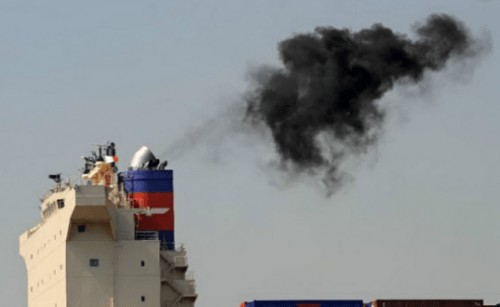The United States is sharpening its focus on enforcement of the IMO 2020 fuel sulfur emissions cap, which could result in harsh penalties for vessel operators caught attempting to sidestep the regulation.
In new guidance issued by the U.S. Coast Guard (USCG), vessels calling on U.S. ports will be expected to carry documents showing they are burning fuel with a sulfur content of no more than 0.5% while in international waters, a regulation that went into force on Jan. 1. In addition to burning lower-sulfur fuel, ships can comply by filtering emissions using a “scrubber” in the ship’s smokestack or by using an alternative fuel such as liquefied natural gas.
Regulations tighten further on March 1, when a high-sulfur fuel carriage ban goes into effect and ships will no longer be able to carry noncompliant fuel in their bunker tanks.
Vessel industry representatives have been skeptical about the ability of regulators in the U.S. and around the world to keep unscrupulous shipowners from cheating by burning cheaper, noncompliant fuel — thereby gaining a significant cost advantage over those that comply.
The USCG emphasized in its updated guidance, however, that since the U.S. is bound to enforce the regulation, it “will review BDNs [bunker delivery notes] and check logs to determine whether the vessel is complying with the applicable fuel sulfur limit when operating beyond U.S. waters.”
The agency also warned of potential shortages of heavy fuel oil with a maximum sulfur content of 0.50%.
“As such, the 2020 sulfur caps may result in an unfamiliar grade of fuel that may consist of a mixture of heavy fuel oil and distillate fuel oil,” it stated in the guidance.
“Further, there is currently no accepted technical specification for such a fuel oil. This has raised concerns in the shipping industry that fuel quality and availability will vary considerably and, as a result, ships may have problems obtaining and/or burning certain fuel oil.”

